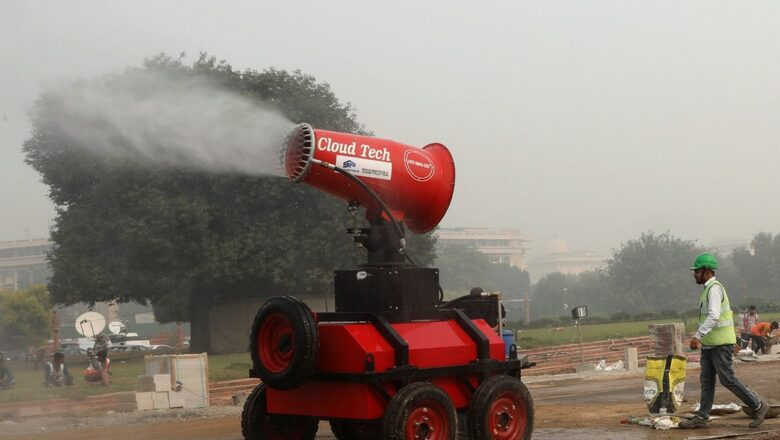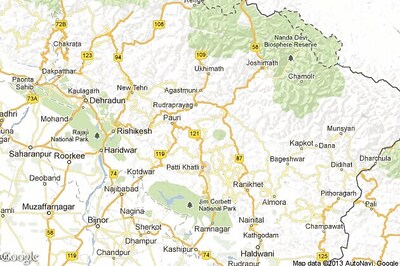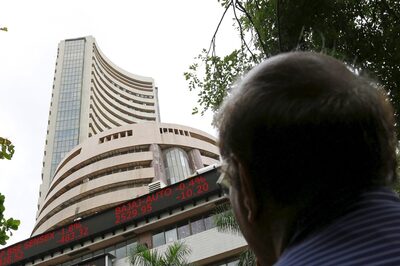
views
With pollution levels in the national capital worsening, the Centre’s air quality panel on Saturday directed authorities to impose a ban on construction and demolition activities in Delhi-NCR, except in essential projects, along with other curbs under the to implement measures under stage III of the Graded Response Action Plan (GRAP III).
At an emergency meeting on Saturday evening, the sub-committee of the Commission for Air Quality Management (CAQM) noted that due to unfavourable meteorological conditions and a sudden spike in incidents of farm fire, “it is considered necessary to implement Stage III of GRAP with immediate effect in the entire NCR”.
What Is GRAP III
The Graded Response Action Plan (GRAP) is a set of anti-air pollution measures followed in the capital and its vicinity according to the severity of the situation. The stage of the plan is determined on the basis of air quality in the Delhi-NCR region: Stage I – ‘Poor’ (AQI 201-300); Stage II – ‘Very Poor’ (AQI 301-400); Stage III – ‘Severe’ (AQI 401-450); and Stage IV – ‘Severe Plus’ (AQI >450).
Delhi’s overall air quality remained in the ‘very poor’ category on Sunday morning with the AQI at 350. The 24-hour average air quality index stood at 397 at 4 pm on Saturday, the worst since January. However, it crossed the severe mark of 400 at some stations yesterday. At Anand Vihar station it reached a whopping 456, while Ashok Vihar saw the index at 422.
AQI was 354 on Thursday, 271 on Wednesday, 302 on Tuesday and 312 on Monday (Diwali).
What All Measures To Come Into Effect As GRAP III Kicks in Delhi NCR
- Under stage III, the authorities have been asked to enforce a strict ban on construction and demolition activities in the NCR, except for essential projects and non-polluting activities such as plumbing, carpentry, interior decoration and electrical works.
- The construction ban will not be applicable to projects concerning national security, defence, railways, healthcare, railways, airports, and metro rail among others.
- However, it is likely to affect housing projects in Noida, Ghaziabad, Gurugram and other areas as it entails a ban on construction and demolition activities, earthwork for excavation, boring and drilling, fabrication and welding operations, loading and unloading of construction material, transfer of raw material, including fly ash, either manually or through conveyor belts and vehicular movement on unpaved roads.
- Mining activities will not be allowed in the region.
- It also covers a ban on all operations of batching plants. Laying of sewer lines, waterline, drainage work and electric cabling through an open trench system; along with cutting and fixing of tiles, stones and other flooring materials will be prohibited in the region.
- Further, grinding activities; piling work; water proofing work; road construction and repair works, including paving of sidewalks, pathways and central verges among others will also be banned under GRAP III.
- Considering the worsening air quality, states may implement restrictions on plying of BS III petrol and BS IV diesel four-wheelers in the national capital region. However, this direction is non-binding on authorities.
- Brick kilns, hot mix plants and stone crushers not operating on clean fuels have also been banned in Delhi NCR.
- The operations of industries that are not running on approved fuels in industrial areas having PNG infrastructure and supply will be shut down. While, in industrial areas that do not have a PNG infrastructure and supply, industries not using approved fuels can operate only for five days a week.
- Under this rule, paper and pulp processing units, distilleries and captive thermal power plants will remain inoperative on Saturdays and Sundays; Paddy and rice processing units will remain inoperative on Mondays and Tuesdays; textile, garments and apparel units including dyeing processes will remain inoperative on Wednesdays and Thursdays; and other industries that do not fall under the above-noted categories will remain inoperative on Fridays and Saturdays.
- Milk and dairy units, along with industries involved in manufacturing of life-saving medical equipment, drugs and medicines have been exempt from the ban.
- In view of the depleting pollution levels, the frequency of mechanised/vacuum-based sweeping of roads has been intensified.
- Under stage III, water and dust suppressants have to be sprinkled on roads, hotspots, and heavy traffic corridors before peak traffic hours, and the collected dust has to be disposed of at designated sites or landfills.
- Authorities are required to encourage off-peak travel. For that, the frequency of public transport services can be intensified and differential rates during off-peak hours may be introduced.
Read all the Latest India News here




















Comments
0 comment